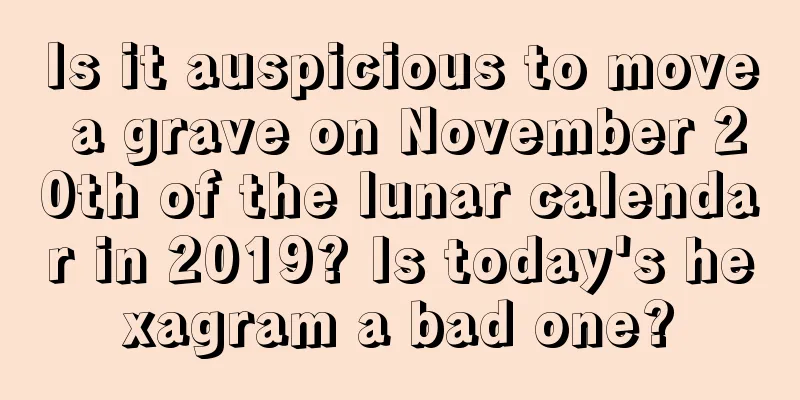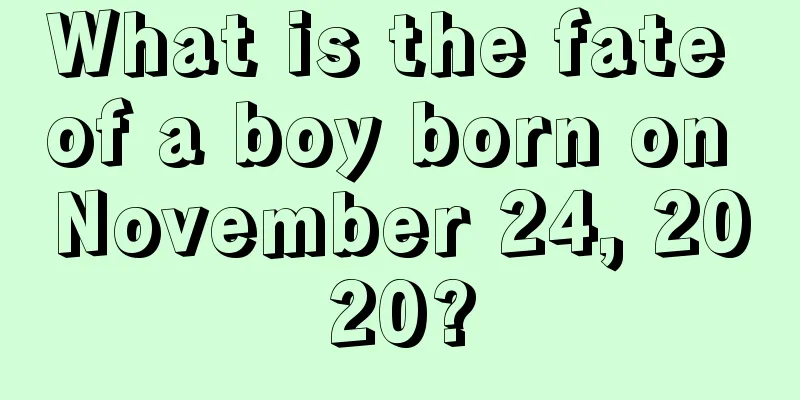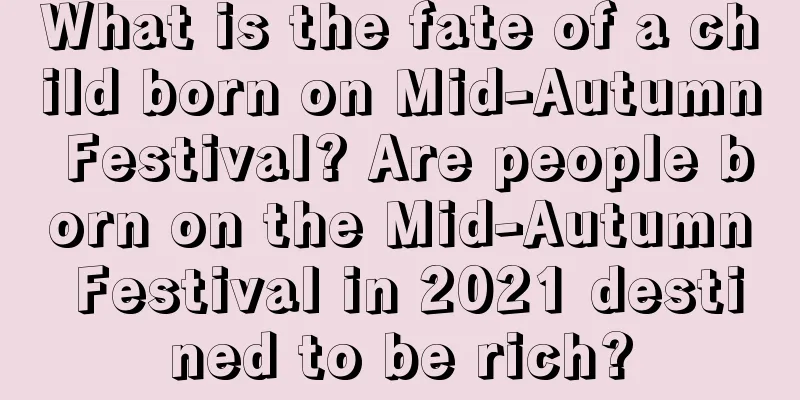What are the customs and traditions of the Little New Year in the twelfth lunar month? Are there any taboos?

"Xiao Nian" is a traditional festival of the Han ethnic group in my country. It is also a festival to send off the Kitchen God to heaven. On this day, every household must prepare offerings. So what are the customs and taboos of Xiao Nian in the twelfth lunar month? Let's take a look!What are the customs and traditions of the Little New Year?Kitchen GodIn ancient times, people believed that if the Kitchen God said a few good words to the Jade Emperor when he went to heaven, it would bring happiness to the family and protect the family from harm in the coming year. Therefore, every year on the 23rd day of the twelfth lunar month, every household would offer sacrifices to the Kitchen God, asking him to say more good and auspicious words when he ascends to heaven. This ceremony of sending off the Kitchen God is called "sending off the Kitchen God" or "saying goodbye to the Kitchen God". On New Year’s Eve, the “Kitchen God” must be welcomed back. Because, on the night of New Year’s Eve, the Kitchen God will come to the human world with other gods to celebrate the New Year, and there are ceremonies of "welcoming the Kitchen God" and "welcoming the gods" on that day. According to local customs, the ceremony of picking up and dropping off is hosted by the host, and female family members do not participate. In ancient times, there was a saying that "men do not worship the moon, and women do not worship the kitchen god." Stove Sugar Stove sugar is a kind of malt sugar also known as sesame sugar. It is very sticky. When it is pulled into a long stick, it is called "Kanto sugar", and when it is pulled into a flat round shape, it is called "sugar melon". In winter, it is placed outside. Because of the cold weather, the sugar melon solidifies and there are tiny bubbles inside. It tastes crispy, sweet and crunchy, with a unique flavor. Cutting paper-cuts Cutting and pasting window decorations is also a popular folk activity during the Little New Year. The contents include various stories about animals and plants, such as magpies climbing on plum trees, swallows flying through peach and willow trees, peacocks playing with peonies, lions rolling embroidered balls, three sheep (yang) bringing good luck, two dragons playing with pearls, deer, cranes, tung trees and toon trees (six harmonies in spring), five bats (blessings) holding longevity, rhinoceros looking at the moon, fish (yu) every year with lotus (continuously), mandarin ducks playing in the water, Liu Hai playing with golden cicadas, the two immortals of harmony and unity, etc. Cutting paper-cuts was one of the handicrafts that women used to compete in to see how dexterous they were. During every Chinese New Year, skillful women would wield scissors and draw on red paper. At that time, women with a solid foundation did not need to draw patterns, and usually created their works improvisationally, which was very casual. Today, paper-cutting is also a kind of art that beautifies life, and one can also have fun while doing it. Sweep the dust After offering sacrifices to the Kitchen God, people begin to prepare for the New Year. Every year, from the 23rd day of the twelfth lunar month to the New Year's Eve, the Chinese people call this period of time "Welcoming Spring Day" or "Dust Sweeping Day". Sweeping the dust is the year-end cleaning, which is called "sweeping the house" in the north and "dusting" in the south. Sweeping the house before the Spring Festival is a traditional custom of the Chinese nation. Dust sweeping mainly means cleaning all the rooms thoroughly. Housewives usually cover the furniture in the house with sheets, wrap their heads with a headscarf or towel, and then sweep the walls up and down with a broom. After sweeping, wipe the tables and chairs, rinse the floor, and welcome the arrival of the New Year with cleanliness, tidiness and brightness. Haircut, wedding According to northern customs, both adults and children have to bathe and have their hair cut on the day of the Little New Year. There is a saying among the people that "Whether you have money or not, you should get a haircut during the New Year." The traditional custom of not getting a haircut in the first month of the lunar year and the desire to have a beautiful new year have led citizens to develop the habit of getting a haircut before the Spring Festival. After the 23rd, people believe that the gods have gone to heaven and there are no taboos. There is no need to choose a date to marry a wife or a daughter, which is called a hasty marriage. There is a saying in the folk song, "At the end of the year, villages are busy with weddings, and Yichun’s invitations are sent to celebrate the spring. Sisters whisper to each other in front of the lamp, and this year’s staying up late is the bridal chamber." Are there any taboos?1. Don’t eat too much sugar candyStove sugar is a must-have delicacy for rural families during the New Year. Stove sugar is a kind of malt sugar with great viscosity. When it is rolled into a long stick, it is called "Kanto sugar", and when it is pulled into a flat round shape, it is called "sugar melon". In winter, it is placed outside. Because of the cold weather, the sugar melon solidifies and there are tiny bubbles inside. It tastes crispy, sweet and crunchy, with a unique flavor. Because there is too much sugar in stove candy, diabetics should eat less of it. 2. Avoid sending flower buns In some rural areas in the north, flower steamed buns are made during every festival. Flower steamed buns are a kind of wheaten food that can be pinched into various shapes. They are both beautiful and delicious. However, according to tradition, the flower buns steamed during the Little New Year are used to worship the Kitchen God and cannot be given to others. 3. Avoid slaughtering A few days before the New Year, people in rural areas would slaughter pigs and sheep in preparation for the New Year. However, in some rural areas of Hubei, slaughtering is usually not done on the Little New Year because people think killing is a bad thing and will bring bad luck to the family. 4. Avoid crushing garlic In some places in Henan, people are taboo about pounding garlic, believing that pounding garlic during the Little New Year will make the family poor. In fact, the date of the Little New Year varies in different places. For example, it is the 23rd day of the twelfth lunar month in the north and the 24th day of the twelfth lunar month in most parts of the south. However, in the Jiangsu, Zhejiang and Shanghai regions, "the 24th day of the twelfth lunar month" and "the night before New Year's Eve" are both called "Little New Year". In Nanjing, the Lantern Festival on the 15th day of the first lunar month is called "Little New Year". In some areas of Yunnan, it is the 16th day of the first lunar month, and in some ethnic minority areas in the southwest and north, it is New Year's Eve. |
<<: Is the 2021 Lichun solar term not suitable for Anmen? What does it mean to beat the Spring Ox?
Recommend
Is the second day of the second lunar month in 2019, the day when the dragon raises its head, an auspicious day?
Is the second day of the second lunar month in 201...
Is it a good idea to install a bed on September 17th of the lunar calendar in 2019? Analysis of the Feng Shui do's and don'ts for installing a bed!
Introduction: It is generally necessary to choose ...
Can’t we start construction on the beginning of winter? Can we start construction on the beginning of winter in 2021?
Whether it is possible to start construction on th...
Can I travel on April 26th of the lunar calendar in 2022? Is traveling okay?
Although many people travel every day, it is not p...
Where is the auspicious position of the God of Wealth on the summer solstice, June 21, 2018?
Introduction: The God of Wealth is the deity in ch...
What are the taboos of Cold Dew? What are the taboos of Cold Dew in 2018?
Introduction: Cold Dew is one of the 24 solar term...
Which day during the National Day in 2021 is suitable for moving into a new house?
National Day is an important festival to celebrate...
The lunar calendar for April 12, 2020, the Year of the Rat - interpreting whether the day will be good or bad, auspicious or inauspicious!
2020 is the Year of the Rat, and is also the Year...
What are the taboos on the 17th day of the first lunar month?
The Spring Festival is one of the major festivals ...
Do girls born on the eighth day of the ninth lunar month in 2021 have good personalities? Are they blessed?
The ninth month of the lunar calendar is the third...
What are the taboos on August 23rd of the lunar calendar in 2018?
Mr. Shui Mo has carefully compiled detailed infor...
Can I move to a new home on the fourth day of the second lunar month in 2020? Is it a good idea to move to a new home?
The fourth day of February in 2020 is the fourth ...
Is the second day of the fourth lunar month in 2018 an auspicious day?
Auspicious days have a certain amplifying effect o...
A list of auspicious and inauspicious times for the Beginning of Summer in 2019! Why is summer so bitter?
In astronomy, the Beginning of Summer marks the fa...
Is the fourth day of the third lunar month in 2022 an auspicious day? How are you doing?
Speaking of auspicious days, I believe everyone is...









